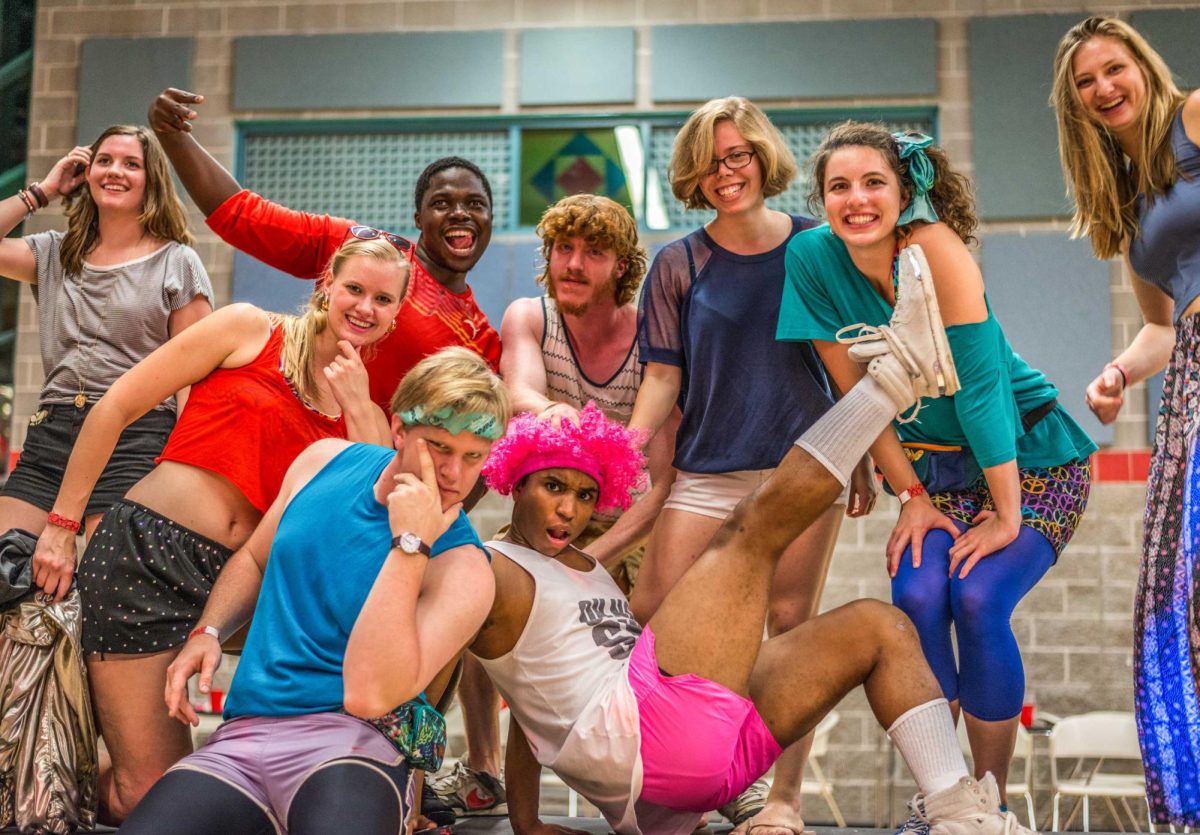Initially created out of concern for the genocide in Darfur, Sudan, STAND is an organization based mostly in the United States dedicated to bringing students together to actively fight genocide around the world. As a division of United to End Genocide, STAND, originally Students Taking Action Now: Darfur, has become a network of high school and college students working together to lobby politicians and raise awareness about worldwide genocide from Darfur to Congo, Burma, Libya and Syria.
Grinnell’s own chapter of STAND was founded last winter by Izzy Leo ’14 and Hannah Fiske ’14, who both participated in STAND in high school. Grinnell’s chapter of STAND is the first and currently the only core chapter in the state of Iowa. Despite this, Leo and other members are already hoping to help start chapters in local high schools if they can generate an interest.
“Mostly what we do is advocacy and lobbying of politicians, and general awareness-raising and education,” Leo said. “We work lobbying politicians either for writing legislation or co-sponsoring existing legislation.”
Leo provided some background on current issues in Sudan and the Congo.
“What has been happening in Darfur is that the government of Sudan is based in Khartoum, which is nowhere near Darfur,” Leo said. “The Darfur region is in Western Sudan, but the government in Khartoum, under their dictator, is trying to create a purely Arab state.”
The Khartoum government became involved in the active eradication of a number of native Sudanese tribes, especially those in Darfur, leading Darfurian groups to lobby in Khartoum for better representation. Instead, the government reacted to the lobbying groups by sending government forces and government endorsed militias to Darfur to take over and burn down villages in the region, resulting in massive deaths and in hundreds of thousands of displaced people and refugees in the farthest western region of Sudan and in eastern Chad.
“Since the split [between Sudan and South Sudan],” Leo added, “there has also been violence along the border with South Sudan, but I don’t think anyone would call that a genocide yet.”
Congo has a similar situation, where some of the groups that were involved in the Rwanda genocide have come to take refuge and are now traveling about, engaged in murder.
Stefanie Kundakjian ’13 is a member of STAND and, along with Leo, just completed a short course—Genocide Denial in the 20th Century—taught by visiting professor Torben Jorgensen.
“One of the points of the course was that genocide not only begins with denial but it continues with denial as well, and is perpetrated by denial,” Kundakjian said. “For example, there is still denial about the Holocaust. Nowadays, luckily, that’s become stigmatized, unlike the Armenian genocide, where there’s actually a state denial.”
“So much of genocide is not only the crimes against humanity, but also the repercussions of that. These events are part of our collective history,” Kundakjian said. “It can therefore be psychologically damaging if they are not officially recognized or remembered.”
Part of what STAND hopes to accomplish at Grinnell is to improve education about genocide and thereby help prevent genocide denial. In order to better educate Grinnellians about genocide, the group is working to arrange a week of events in April, which is Genocide Awareness Month, to discuss past and current conflicts. The talks are tentatively scheduled to begin on Holocaust Remembrance Day—April 19, the start of the Armenian genocide—and end April 24.
Leo and Kundakjian are also hoping to bring a Holocaust survivor to talk to Grinnell, as well as a Congolese activist, spoken word artist and rapper, in addition to a number of refugees from eastern Congo who now live in St. Louis and tell their stories through song and dance.
“We highly encourage people to join,” Kundakjian said. “It’s not only an informative meeting, but there’s also a sense of solidarity over an issue that is still very current and very felt.”
STAND meets weekly on Wednesday at 8:00 p.m. in JRC 203.


















































